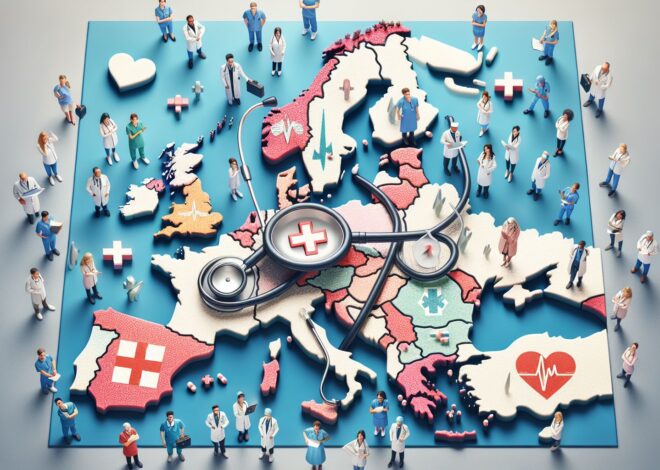
European Health Systems: Preparedness and Response
The COVID-19 pandemic has put a tremendous strain on health systems around the world, testing their preparedness and response mechanisms. European health systems, in particular, have been at the forefront of this global crisis, with health professionals, policymakers, and concerned citizens working diligently to manage and mitigate the impact of the virus. In this post, we will discuss the preparedness and response of European health systems, examining their strengths, challenges, and the lessons learned during this unprecedented time.
Introduction: A Global Crisis
The COVID-19 pandemic caught the world by surprise, challenging the resilience of health systems worldwide. European countries, with their advanced healthcare infrastructure and robust policies, were not exempt from this unprecedented challenge. However, the preparedness and response of European health systems have been commendable, reflecting both their strengths and areas for improvement.
Strengths of European Health Systems
- Robust Infrastructure: European health systems are characterized by their excellent healthcare infrastructure, encompassing state-of-the-art hospitals, well-equipped laboratories, and highly skilled professionals. These resources provided a solid foundation to combat the pandemic effectively.
- Well-Established Policies: European countries have well-established policies and guidelines in place to address public health emergencies. These policies allowed for quick and coordinated responses at both national and regional levels.
- Research and Innovation: The European health systems have a strong emphasis on research and innovation, enabling them to quickly adapt and develop solutions in the face of the pandemic. Collaborative efforts between researchers, policymakers, and health professionals have led to the rapid development of testing protocols, treatment options, and vaccines.
Challenges Faced
- Capacity Strain: The surge in COVID-19 cases overwhelmed healthcare capacity in many European countries. Hospitals, especially in densely populated areas, faced difficulties in providing adequate care due to limited beds, ventilators, and healthcare workforce.
- Supply Shortages: The pandemic exposed vulnerabilities in the global supply chain, leading to shortages of personal protective equipment (PPE), testing kits, and essential medical supplies. European health systems had to rapidly adapt to secure and distribute these critical resources.
- Interconnectivity and Communication: The pandemic highlighted the need for improved interconnectivity and communication between health systems across Europe. Sharing information, best practices, and resources in real-time proved challenging, hindering a more coordinated response.
Lessons Learned
- Investment in Preparedness: The pandemic has underscored the importance of investing in preparedness for health emergencies. European health systems should prioritize funding for research, infrastructure upgrades, and maintaining an adequate stockpile of essential supplies.
- International Collaboration: Strengthening international collaboration and information sharing platforms is crucial for managing future pandemics. European health systems should establish frameworks that enable seamless communication and cooperation across borders.
- Resilience and Flexibility: Health systems must improve their resilience to stressors and be flexible enough to adapt to rapidly evolving situations. Allocating resources strategically and implementing scalable response strategies can ensure better preparedness for future crises.
Conclusion: A Continuing Journey
The COVID-19 pandemic has been an arduous journey for European health systems. Despite the challenges faced, their strengths, such as robust infrastructure, well-established policies, and a culture of research and innovation, have helped mitigate the impact of the virus. However, the crisis has also revealed gaps that need to be addressed, including capacity strain, supply shortages, and the importance of improving interconnectivity and communication.
As health professionals, policymakers, and concerned citizens, we must acknowledge the lessons learned from this pandemic and actively work towards strengthening our health systems’ preparedness and response capabilities. By investing in research, fostering international collaboration, and enhancing the resilience and flexibility of our systems, we strengthen our ability to protect public health, not just in times of crisis, but for years to come.
Note: The preparedness and response of European health systems are continuously evolving as more data is gathered and new challenges arise. This article summarizes the situation at the time of writing and may not reflect the most current developments.



